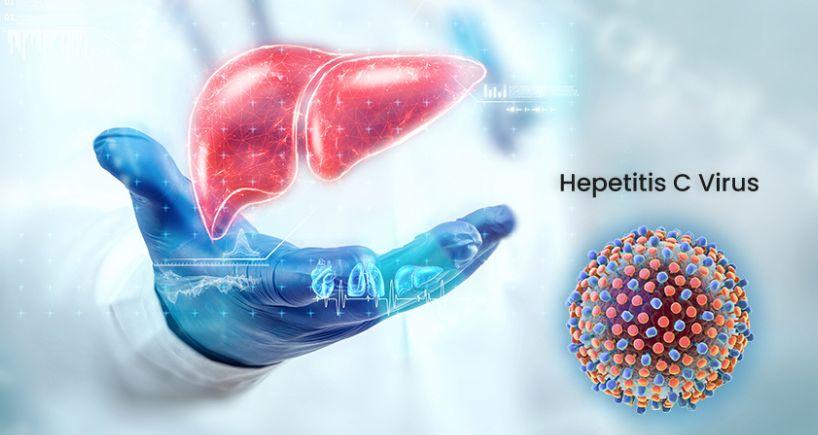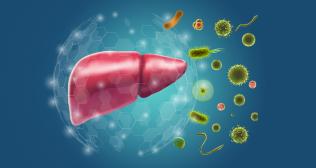
Hepatitis C: Symptoms, Transmission And Treatment Options
Hepatitis means inflammation. It is a type of viral infection that leads to inflammation and swelling of the liver and damages the tissues of the liver gradually. Chronic inflammation can affect the liver severely and cause liver failure as the hepatitis C virus stays in the body for a long time. However, the downside is that most people don’t experience symptoms of hepatitis C until the damage is severe.
According to data mentioned by the Centers for Disease Control and Prevention (CDC), nearly four million people are affected with Hepatitis C in the US alone and are unaware. The figure across the world is 60 million. Hence it is suggested that all adults be screened for hepatitis C on a regular basis.
The symptoms of hepatitis C include fever, tiredness and fatigue, body pain, loss of appetite, jaundice, pain in the abdomen, nausea and vomiting, and dark-colored urine or stools. The symptoms of advanced liver disease are swelling on the arms and legs, fluid in the abdomen, itchiness on the skin, unexplained loss of weight, easy bruising and bleeding, confusion, and issues with memory and thinking processes.
How is the infection transmitted?
The condition is caused by a virus that spreads through blood contact. Transmission takes place when the blood of the person who is infected enters the body of another person who is not infected. This happens when injection needles are shared for intravenous drugs and use of unsterilized equipment during tattoos and body piercing. Even using a common razor or toothbrush with someone who has bled can transmit the infection and so can sexual contact with the infected person. In the past, the condition was transmitted through blood transfusion but in the present times doctors screen for the virus before using the blood and other organs that are donated. There are suggestions that everyone who has received a blood transfusion or organ donation earlier should also get tested for HCV.
The infection has many stages.
- Incubation- Once a person is infected with the virus, there is an incubation time when the virus replicates itself in the body till it reaches a stage when the body takes notice of the infection. It is then that the immune system gets alerted and the person begins to exhibit symptoms.
- Acute infection- This is the stage when the immune system gets into action mode and can last for two to six months. However, most people don’t notice unless the inflammation is very severe and only 20% of the people with the conditions show symptoms. The ones who show symptoms can be treated with anti-virals and can clear the infection effectively.
- Chronic infection-80% of the people don’t have symptoms and are unaware of their condition while their liver keeps getting swollen and inflamed leading to severe damage like cirrhosis. Cirrhosis of the liver progresses gradually for decades and is triggered more by alcohol consumption. The scarred tissue prevents the liver from performing optimally.
The tests to diagnose the condition include a blood test to check for antibodies and an RNA-PCR to check the presence of the virus. If the tests are positive the doctor prescribes the liver function test, elastography, and liver biopsy to check the amount of damage to the liver and the occurrence of scar tissue.
What is the treatment for Hepatitis C?
Usually, the infection doesn't go away without proper treatment but if it is in the acute stage then the infection may clear due to the action of the immune system and not develop into a chronic condition. If the person has developed chronic hepatitis C then anti-virals may be needed to clear the infection and may require eight to 24 weeks to go away.
If the infection has advanced to cirrhosis, just curing the infection may not be sufficient and there are chances that the person may experience liver failure. In this scenario, a liver transplant may be required. However, the body still has to be cured of the infection to safeguard the health of the new liver.
Although at present there is no effective vaccine for Hepatitis -B there is ongoing research to formulate one despite the challenges of the various mutations and variations that the virus has.
Speaking of prevention of the condition, doctors suggest everyone be screened at least once for hepatitis C, and avoid sharing needles and syringes to protect their liver. Consulting a doctor for the way forward can help save the liver from multiple complications.
Popular Searches :
Hospitals: Cancer Hospital in Delhi | Best Heart Hospital in Delhi | Hospital in Amritsar | Hospital in Ludhiana | Hospitals in Mohali | Hospital in Faridabad | Hospitals in Gurgaon | Best Hospital in Jaipur | Hospitals in Greater Noida | Hospitals in Noida | Best Kidney Hospital in Kolkata | Best Hospital in Kolkata | Hospitals in Rajajinagar Bangalore | Hospitals in Richmond Road Bangalore | Hospitals in Nagarbhavi Bangalore | Hospital in Kalyan West | Hospitals in Mulund | Best Hospital in India | | Cardiology Hospital in India | Best Cancer Hospital in India | Best Cardiology Hospital in India | Best Oncology Hospital In India | Best Cancer Hospital in Delhi | Best Liver Transplant Hospital in India
Doctors: Dr. Rana Patir | Dr. Rajesh Benny | Dr. Rahul Bhargava | Dr. Jayant Arora | Dr. Anoop Misra | Dr. Manu Tiwari | Dr. Praveer Agarwal | Dr. Arup Ratan Dutta | Dr. Meenakshi Ahuja | Dr. Anoop Jhurani | Dr. Shivaji Basu | Dr. Subhash Jangid | Dr. Atul Mathur | Dr. Gurinder Bedi | Dr. Monika Wadhawan | Dr. Debasis Datta | Dr. Shrinivas Narayan | Dr. Praveen Gupta | Dr. Nitin Jha | Dr. Raghu Nagaraj | Dr. Ashok Seth | Dr. Sandeep Vaishya | Dr. Atul Mishra | Dr. Z S Meharwal | Dr. Ajay Bhalla | Dr. Atul Kumar Mittal | Dr. Arvind Kumar Khurana | Dr. Narayan Hulse | Dr. Samir Parikh | Dr. Amit Javed | Dr. Narayan Banerjee | Dr. Bimlesh Dhar Pandey | Dr. Arghya Chattopadhyay | Dr. G.R. Vijay Kumar | Dr Ashok Gupta | Dr. Gourdas Choudhuri | Dr. Sushrut Singh | Dr. N.C. Krishnamani | Dr. Atampreet Singh | Dr. Vivek Jawali | Dr. Sanjeev Gulati | Dr. Amite Pankaj Aggarwal | Dr. Ajay Kaul | Dr. Sunita Varma | Dr. Manoj Kumar Goel | Dr. R Muralidharan | Dr. Sushmita Roychowdhury | Dr. T.S. MAHANT | Dr. UDIPTA RAY | Dr. Aparna Jaswal | Dr. Ravul Jindal | Dr. Savyasachi Saxena | Dr. Ajay Kumar Kriplani | Dr. Nitesh Rohatgi | Dr. Anupam Jindal |
Specialties: Heart Lung Transplant | Orthopedic | Cardiology Interventional | Obstetrics & Gynaecology | Onco Radiation | Neurosurgery | Interventional Cardiology | Gastroenterologist in Jaipur | Neuro Physician | Gynecologist in Kolkata | Best Neurologist in India | Liver Transfer











